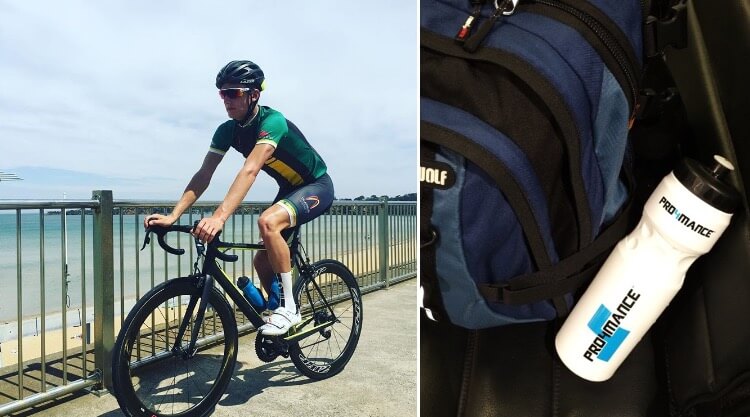
By guest blogger, Professional Triathlete and Prolete, Joel Tobin-White.
Whether it’s packed like sardines in a team car; fighting for the arm rest with a stranger on a bus; using quantum physics to solve how your bike bag will fit on a train or defying all odds as your body wants to succumb to DVT during a flight, travel impacts the body.
No matter what level of athlete you are, at some point in your sporting career you will most likely have to travel to a race. I’ve found that most people neglect to acknowledge the sheer negative impact that travel can have on the body if they’re not prepared. With this in mind I thought I’d write a list of the 5 most important tips that I’ve learnt over my 10+ years of travelling domestically and internationally to running/triathlon races and training camps.
1. PRE-SLEEP. Make sure you have a good night sleep the night before you travel. This will boost your mood the next day as well as ensuring your body clock will be aligned to the current time zone for domestic travel.
2. SLEEP DURING. Sitting in the one spot on a journey can often make you feel tired and whilst having short naps can assist in boosting energy, long naps can knock the body out of wack. When embarking on long flights overseas I would recommend timing sleep with your usual bed time in the time zone of your final destination.
3. HYDRATION. This has to be one of, if not the most important tip. Ensuring you are fully hydrated is the easiest way to assist your body in coping with travel, especially on flights when the atmosphere is dry. Before every long travel journey I finish a bottle of Pro4mance Prodrate in the 30mins prior to departure. I’ll then constantly swap between sipping water and another bottle of Prodrate for the duration of the trip. If I’m racing the following day I’ll swap the Prodrate for Produrance because the extra carbs can be helpful.
4. NUTRITION. When travelling on the road or spending time at airports it becomes quite easy to ignore your current nutrition habits. Try to minimize junk food intake as this will just contribute to your body feeling lethargic. After a long haul journey I try to eat a big nutritious meal, followed by a shaker of Procover to make sure my body can optimally recover for the next day.
5. MOVEMENT. If you’re driving in a car and are lucky enough to demand the number of breaks taken then use these for more than refilling the Minties stockpile from the petrol station. Every couple of hours I would walk a few hundred metres, followed by some basic run/range of motion drills to limber up before the next stint. If you’re travelling by plane, train or public bus then regular stops are impossible. However this doesn’t stop you from walking up and down the aisle. I’d still do some basic movement drills standing on the spot although if you’re going to do some leg swings I’d proceed with caution as you don’t want to send the Butter Chicken on the tray in front of you sky-rocketing over other passengers. Stretching is also useful during the journey, just don’t overstretch as this can make things worse.